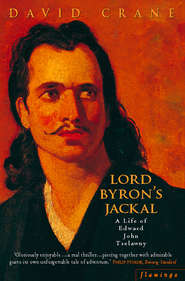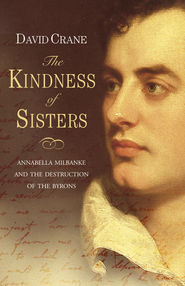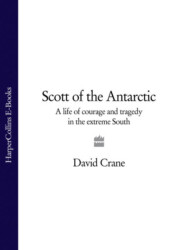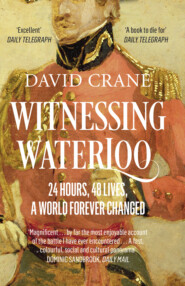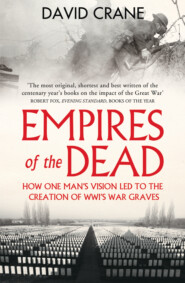По всем вопросам обращайтесь на: info@litportal.ru
(©) 2003-2024.
✖
Men of War: The Changing Face of Heroism in the 19th Century Navy
Настройки чтения
Размер шрифта
Высота строк
Поля
In a sense these technical developments left the subjects of this book relatively untouched: Peel did most of his fighting on land, and Goodenough died a very eighteenth-century death. But the navy has always been a microcosm of national life, and no one was immune to the wider social and intellectual changes shaping nineteenth-century Britain. Both Peel and Goodenough first went to sea in the last leisurely days of sail, but if they were Georgians by upbringing and age they were Victorians by instinct and high moral seriousness, and in crucial matters of temperament and faith as remote from Hastings as they were close to him in their gift for war.
And while there are certain men, as John Masters put it in his wonderful evocation of pre-Second World War soldiering with the Indian Army, Bugles and a Tiger, who only come fully alive in battle, there are fewer who are prepared to admit it even to themselves. Over the middle years of the century both Goodenough and Peel would throw themselves into conflicts every bit as savage as anything Hastings knew, but even so they could no more have publicly signed up to his reductive vision of ‘the art of war … in other words, the method of killing men most expeditiously’ than could the Christian country and governments that sent them into action.
Hastings had come of age in a war of national survival that left little room for moral reflection, and had fought for Greece in a savage war of liberation that left still less room for sentiment, but these were dispensations that the generations who fought for Turkey in the Crimea or in the Opium Wars against China never enjoyed. In every war there will always be men who fight for the sheer joy of stabbing and stabbing again the ‘well-killed Boche’, but for anyone else, anyone brought up within the framework of a Christian nation – and it is impossible to overstate the influence of religion on the national life of nineteenth-century Britain – the sheer thrill of battle and the Homeric lust for Glory and Fame that were the unashamed motives of Hastings’s life had to be dissembled into more morally acceptable notions of ‘Duty’, Service’, ‘Patriotism’ and ‘Sacrifice’.
The fighting instincts were no less rampant – ‘After all,’ Thomas Hughes cheerfully asked in Tom Brown’s Schooldays, ‘what would life be without fighting, I should like to know?’ – but no one who had had their first scrap at the back of Thomas Arnold’s chapel at Rugby was ever left in any doubt of the need for a just moral cause. ‘From the cradle to the grave,’ Hughes went on, neatly subsuming the soul, the school playground and the killing grounds of the Alma and Inkerman into one moral universe, ‘fighting, rightly understood, is the business, the real, highest, honestest business of every son of man. Every one who is worth his salt has his enemies, who must be beaten, be they evil thoughts and habits in himself, or spiritual wickedness in high places, or Russians, or Border-ruffians, or Bill, Tom, or Harry, who will not let him live his life in quiet till he has thrashed them.’
The pages of Tom Brown’s Schooldays are as good a place as any to feel the moral change that had overtaken nineteenth-century Britain, and one of the fascinations of the three lives here is the ways in which natural warriors of successive generations justified to themselves Hastings’s ‘art of killing’. As a boy of seventeen William Peel would experience all the thoughtless excitement of action at the bombardment of Acre; but if that takes little understanding, what was it that enabled a man of his intelligence, piety, innate gentleness and background to fight with such brilliance in the Crimea in defence of an Ottoman Empire that was repugnant to every tenet he held?
Perhaps the first and most prosaic answer is that there was a burgeoning belief in the nineteenth century – and one to which Peel ardently subscribed – that God’s Higher Purpose was to be worked out through British civilisation, British arms and British trade. Seldom can the long, disreputable history of the ‘Just War’ have been deflected to such improbable purposes. ‘There cannot be a doubt that it is a just war we are engaged in,’ wrote Captain Hedley Vicars, a natural warrior and Popery-hating zealot who in 1854 looked forward to Britain’s triumph over the Russians in the Crimea as a portent of the imminent ‘coming of the Son of Man’.
There are some people, I know, who cannot imagine how any Christian could ever join the deadly strife of battle; but I can only say with such I do not agree, so I shall not flinch from doing my duty to my Queen and Country, the Lord being my helper … I consider war to be … as much a visitation from the Almighty as cholera or any other scourge; and as on the appearance of that dreadful malady, we do not sit quietly down and let it take its course, but very rightly (trusting in the blessing of God) use every precaution, and employ every means to drive it from amongst us, so in the case of this war with the Russian despot. He has made an aggression against a country (one of our oldest allies), which has given him no just cause of provocation, and has thus disturbed the peace of Europe and let loose upon us the horrors of war, and shall we Britons let him have his way, and tamely look on? God forbid! Rather will we, the Lord being our ‘shield and buckler’ crush the evil, and restore peace and quietness to the land.
There were other, and contradictory, strands at work too, and alongside this growing belief in Britain’s Divine Mission was a lurking anxiety that the sinews of national life had been fatally softened by long years of peace. The triumphant success of the Great Exhibition in 1851 had demonstrated to the world the pre-eminence of British manufacturing, but what if there was a price to pay for prosperity and luxury in a decline of the ‘Race’ that only war could halt? ‘Art?’ exclaims Stangrave in Charles Kingsley’s Two Years Ago (1857), a novel set against the background of a Devon village ravaged by cholera and the mightier national struggle with the Russians taking place on the shores of the Black Sea:
What if the most necessary human art, next to the art of agriculture, be, after all, the art of war? It has been so in all ages. What if I have been befooled – what if all the Anglo-Saxon world has been befooled by forty years of peace? We have forgotten that the history of the world has been as yet written in blood; that the history of the human race is the story of its heroes and its martyrs – the slayers and the slain. Is it not becoming such once more in Europe now? And what divine exemption can we claim from the law? … What if the wise man’s attitude, and the wise nation’s attitude is that of the Jews rebuilding their ruined walls – the tool in one hand, and the sword in the other; for the wild Arabs are close outside and the time is short, and the storm is only lulled a while in mercy, that wise men may prepare for the next thunderburst … Armed industry, which tills the corn among the cannons’ mouths … knows that so long as cruelty and wrong exist on earth, man’s destiny is to dare and suffer, and if it must be so, to die.
It was no coincidence that the two great, sacrificial periods of British polar exploration – the search for Sir John Franklin in the early 1850s and the first stirrings of interest in Antarctica at the end of the century – coincided with two prolonged periods of peace, and war offered opportunities for purging the nation’s soul that not even the self-induced miseries of ‘man hauling’ and starvation rations could match. For Kingsley the conflict with Russia was nothing short of a wakening ‘to a new life – at least to the dream of a new life!’, it was ‘a discipline from heaven’, an expiation for old ‘sins’, a purifying fire that redeemed men and women alike from fripperies and ease. ‘My health is quite restored enough to enable me to walk up to a cannon’s mouth,’ Major Campbell tells the beautiful Valentia St. Just before sailing for the Crimea and a hero’s death on ‘Cathcarts’s Hill’, only yards from where William Peel would win his Victoria Cross. ‘There are noble elements underneath the crust, which will come out all the purer from the fire; and we shall have heroes and heroines rising up among us as of old, sincere and earnest, ready to face their work, and to do it, and to call all things by their right names.’
Along with this sense of national crisis went a growing obsession with masculinity and courage that seems from this distance a reflex of the same insecurity. ‘To understand courage,’ wrote Field Marshal Lord Wolseley – a companion-in-arms and admirer of Peel’s – in a noxious article entitled ‘Courage’ that might have provided chapter and verse for everything that is most paranoid in the whole A.E.W. Mason canon,
one must have thoroughly studied cowardice in all its phases and they are infinite. It is the most subtle of mental diseases, the existence of which may never be known to any but the man whose heart it gnaws at. When the day arrives on which all hearts shall be open, we shall, I am sure be astonished to find that many of those who have passed muster in our ranks as brave men will plead in extenuation of sins committed the astounding fact that they were cowards by nature.
There are, of course, many degrees of courage, endless varieties in its manifestations, but my own experience leads me to believe that this virtue in men follows the same natural laws as obtain in the cases of horses and dogs. The better bred all three are the greater will be the innate pluck …
In our army – as indeed in nearly all good armies – there is a great gap between the social position of the officer and the private. Their education from early infancy has been as opposite as the poles … For the officer to be suspected of any lack of nerve would be fatal to him. He would be shunned and boycotted as a leper, and he had better end his days at once by his own hand.
This, then, was the culture – a culture of national assertion and self-doubt – that shaped the mid-century experience of war, and twisting insidiously around Kingsley’s visions of redemption and Wolseley’s darker obsessions was that bizarre and very Victorian cult of Chivalry that found one of its most famous and handsome incarnations in Sir William Peel. The history of chivalry had already taken some very odd turns by the time of the Crimean War, but under Kingsley’s and Thomas Hughes’s influence ‘the old chivalrous and Christian belief [in] the protection of the weak, the advancement of all righteous causes’ was refined into a search for self-purification and ‘self-conquest’ that reached its highest pitch on the barren uplands above the city of Sevastopol.
‘The annals of chivalry’ had nothing to match the exploits of Peel and his young ‘pages’ in the Crimea, Lord Lyons, the Commander-in-Chief in the Black Sea, would tell an enraptured Guildhall audience at a banquet to celebrate the end of the Crimean War, and the greater the moral and physical degradation around him, the more brilliantly Peel’s armour shone. Nobody who saw him under fire in the trenches of the Crimea would ever forget his air of quiet and inviolable self-mastery, and it would be the same again in India, where he could ride through a landscape of decomposing corpses and tree boughs heavy with hanged rebels as if it was some mythological world of chimeras and goblins conjured up by a Malory to try his knightly resolve.
If the face of heroism had changed between the Homeric code that Hastings embraced and the medieval code of a Peel, the life and death of the third of these naval officers provides perhaps the most vivid proof of how it would mutate again before the Victorian age was very much older. In the eyes of a man like Thomas Hughes there might have seemed no conflict between ‘chivalry’ and Christianity, but to a sterner moralist of Thomas Arnold’s stamp the whole cult of chivalry – with its essential egotism, its elitism, its self-reliance, its glamorised brutality, its culture of ‘honour’ rather than ‘duty’ – was not some knightly expression of the gospels but the enemy and antithesis of those true Christian virtues that a Protestant England would eventually find in James Graham Goodenough.
The cultural divide between Peel and James Goodenough was not the same in either degree or kind as that between either man and Hastings, but it was in its way just as profound. It is always tempting to think of change in terms of generations or decades, but history rarely evolves so neatly, and although only six years separated the two men in age, the Britain that mourned Peel’s death in India in 1858 was not the same country that would thrill to Goodenough’s less than twenty years later.
When Peel died the country commemorated the life of a peerless knight; when Goodenough was killed it celebrated the death of a national martyr. In those two responses lies a world of difference. It was not that ‘Holy Joe’ Goodenough had been any less of a natural fighter than either Hastings or Peel, or had been engaged in ‘better’ wars, but that his ‘heroic’ death at the hands of a group of island ‘savages’ whom he refused to harm chimed not just with Britain’s growing sense of its Sacred Mission but with the tastes, prejudices and religious instincts of an ascendant middle class ready to claim Goodenough as its own.
It was in some ways a curious claim to make on a man married to a goddaughter of the Queen, but in more important respects they had it right. By birth and education Goodenough might have sprung from an ethos of refined privilege, but in his faith, social conscience and his impregnable, teetotalling respectability he belonged squarely to that middle-class world – to a world that stretched from the products of Arnold’s Rugby at one end to the chapel, mission and Low Church pamphleteer at the other – that was learning to look to its own kind for the embodiments of national greatness. ‘The middle class of this country may well be proud of such men as these,’ wrote The Times of Havelock, Nicholson and Neill, the heroes of the Indian Mutiny, ‘born and bred in their ranks – proud of such representatives, such reflections of their own best and most sterling characteristics, – proud of men who were noble without birth, without the pride of connexions, without a breath of fashion, and without a single drop of Norman blood in their veins.’
But if in Goodenough the middle classes had, at last, the real thing, a Christian warrior who lived and died by what he preached, the concept of a ‘naval martyr’ was not without its difficulties. The sole reason that the public at large had been happy to indulge the chiliastic nonsense of a man like Vicars was that he could also fight like a lion, and if Sir Henry Havelock, the hero of Lucknow, was allowed to treat the world to the spectacle of an exemplary Christian death it was because he had made damned sure to precede it with a campaign of unedifying Old Testament ferocity.
Goodenough, though, was different, and if he chased Glory as assiduously as Hastings and Peel had done, it was the Glory of the next world and not of this. Throughout his long and distinguished career he did all he could to reconcile the conflicting claims of his faith and his profession, but when, finally, in the pursuit of Britain’s Sacred Mission among the natives of the Pacific islands he had to choose between ‘love’ and ‘duty’, and paid for it with his life, a new and disturbing kind of naval hero was born.
There were those in the service who were dismayed by his choice, but if the sword that had been left to Edward Scott had come a long way in forty years to stay so firmly sheathed on a beach on Santa Cruz, Hastings would at least have recognised the forces that had brought Goodenough to such an end. In the years since his own death the whole concept of heroism might have changed, but if – to use George Finlay’s phrase – those ‘elements of true greatness’ that had combined in him to produce a martyr to Greek freedom coalesced in Goodenough to create a profoundly different kind of hero, then the elements themselves remained just the same.
Courage, sacrifice, selflessness, ardour, energy, vanity, pride – the self-referential vanity of the hero, the spiritual pride of the martyr – they are all there, but if there is one key to the lives that follow it probably lies in the ‘thirst for glory’ that Hastings confessed was the driving force of his life. There are any number of reasons why men fight, and then there are the reasons that they give, but whether it was an earthly or a heavenly reward, the ‘lustre of a name’ that Peel spoke of or the lustre of a martyr’s crown, the battles of the sea that were the only sort Hastings knew or Bunyan’s battles of the soul, the pursuit of ‘Glory’ – whatever the price – was, in all three men, what Alexander Pope would have called the ‘Ruling Passion’.
And no nineteenth-century naval officer needed to be reminded of where the paths of glory almost inevitably lead. ‘There is no death so glorious, so much to be desired, as on the battlefield,’ wrote Captain Oliver Jones, who had helped support the wounded Peel at Lucknow, and if an ironic fate robbed each of Hastings, Peel and Goodenough of that particular happiness, they were, like Tennyson’s Sir Perceval, at least allowed to glimpse the Grail. In their last moments as fighting men each saw the glory that they had lived for, and none of them would have had it any different. For the Homeric warrior, the ‘parfait gentil knyght’ and the soldier of Christ alike, death – ‘the experience of all experiences’, as Charles Kingsley put it – was not the negation of hopes and ambitions, but what Goodenough, writing to a wife who would rejoice in his Christian triumph, called ‘the happy crown of life’.
Hastings (#ulink_6fac4a12-0766-592a-89f2-d9be80adafef)
The Happy Warrior
I
IN THE LATE AFTERNOON of 18 June 1819, a Royal Navy brig of war seven weeks out of England came into a busy Port Royal harbour on the island of Jamaica under a flamboyant press of sail. It was a manoeuvre her young commander had seen and admired in other captains, and as the Kangaroo came alongside the moored flagship, Iphigenia, he gave the order to shorten all sail and simultaneously let go her anchor.
It would have been a flashy manoeuvre in a vessel that handled better than the Kangaroo, and as she began to drift towards the Iphigenia, her commander found himself powerless to stop her. The First Lieutenant in the flagship had been engaged on the blind side of the quarterdeck as the Kangaroo came in, and the first he knew of the danger was when the shouting brought him across to the starboard rail to see the Kangaroo ‘broadside on’ and ‘apparently drifting’ under her own momentum athwart the Iphigenia’s cable. ‘I instantly ordered the Boatswain to send out the Forecastle men to run in the flying Jib boom,’ he recalled. ‘Captain Parker gave orders for veering the cable which I went to see executed as the Kangaroo would certainly have been on board of us had it not been done.’
The incident and the danger were over in a moment, but the Iphigenia was neither the ship, nor Iphigenia’s captain the man to have affronted in this way. ‘You have overlayed our anchor,’ shouted the future Admiral Sir Hyde Parker – son of Admiral Sir Hyde Parker, grandson of Vice-Admiral Sir Hyde Parker Bt. ‘You ought to be ashamed of yourself, you damned Lubber, who are you?’
It would be another thirty-six hours before Hyde Parker got a reply to his question, but the answer when it came was ‘Lieutenant and Commander’ Frank Abney Hastings, a fair-haired, jaw-jutting twenty-five-year-old veteran of the Napoleonic and American wars with the nose of a Wellington and rather more of his character than was good for a junior officer. He had taken over HM Survey Vessel Kangaroo in a murky Deptford Basin just five months earlier, and had brought to his first modest command all the enthusiasm and energy of a man who had lived for that responsibility since he had first gone to sea as an eleven-year-old on the eve of Trafalgar. ‘I was a young officer,’ he later pleaded in extenuation of his recklessness,
and anxious to excel … God forbid that I should for one instant attempt to justify in myself a conduct that I should not approve in another. I had quite recently observed with admiration the smart way in which some men of war in which I have been brought up have shortened all sail at the moment of anchoring and I was ambitious to imitate them. I feel now how injudicious it was to attempt such an evolution in a vessel like the Kangaroo.
Contrition did not come naturally to Frank Hastings, but more unfortunately it had not come early either, and long before this confession reached the Admiralty he had done all within his powers to ruin his career. On the evening of the Kangaroo’s arrival in Port Royal he had delivered the despatches he was carrying to the Commander-in-Chief as if nothing untoward had happened, and then like Achilles to his tent, had returned to the pregnant solitude of his captain’s cabin to brood over the public nature of Parker’s insult. ‘When duty permitted me for a moment to reflect on the language used by Captain Parker,’ he later wrote to the Lords Commissioners,
my first impression was to apply for a Court martial … there were officers of the army on board who could not be ignorant from its Publicity of the insult offered me & … would have construed forbearance into cowardice … in fact the short time I had to deliberate left me no choice but that of disgracing the Rank to which your Lordships had been pleased to appoint me or of adopting the proceeding which has unfortunately led to this explanation.
The following morning – a Sunday – he went on half-pay and, dressed in a plain blue greatcoat, had himself rowed across the harbour to Admiral Home Popham’s flagship. There, on the Iphigenia’s quarterdeck, ‘between three and four bells’, he approached the officer of the watch, a Lieutenant Wood. ‘Captain Hastings asked me if Captain Parker was on board,’ Wood later testified: ‘he at the same time gave me a note for Captain Parker saying it was from Captain Hastings. I went to the opposite side of the deck where Captain Parker was and delivered it to him, informing him it was from Captain Hastings. Captain Parker then opened the note and appeared to read it.’
‘Port Royal Monday 20th June,’ the hurriedly scribbled note read. ‘You appear about to sail – time is precious tomorrow morning I must have that satisfaction your conduct on the 18th has rendered so indispensable. I am not provided with a friend so that I am myself the bearer of this. Frank Hastings late commander of the Kangaroo.’
It was the first in a chain of letters that would eventually stretch from Port Royal to the Admiralty and the Prince Regent. ‘Sir,’ Parker wrote the same day to Popham, enclosing Hastings’s challenge, careful to embrace his admiral, his admiral’s flagship and His Majesty’s whole navy in the insult to his personal dignity:
The day before yesterday in the evening a Brig of War, the Kangaroo, commanded by Lieutenant Frank Hastings came into Port Royal, in so unofficerlike manner as far as related to the respect which is due to all Flag Ships, and in so lubberly as far as relates to his professional duties as a seaman … that I could not refrain from reprimanding the Officer, whoever he might be, in severe terms …
To my great astonishment however, this morning a person calling himself Capt Frank Hastings came aboard His Majesty’s Ship Iphigenia and delivered the enclosed challenge …
I now most respectfully Sir, leave it to you to judge whether the discipline of the Service has not been insulted by such a proceeding … I am satisfied that my Lords Commissioners of the Admiralty will upon this occasion approve of my conduct in bringing this Officer before a Court instead of accepting a challenge publicly delivered before the officers; contrary to the respect which is due to the Military discipline of His Majesty’s Service.
As Popham’s own chequered record would suggest, he was in fact a seaman of a very different cast – had Hastings issued his challenge in the first rush of blood, he later told him, he ‘could almost have forgiven it the provocation was such’ – but in a service that forbade duelling he had little room for manoeuvre. On the same day he instructed Commodore Sir George Collier to convene the senior captains in port aboard HMS Sybille, and when in another fit of hauteur and legalistic quibbling Hastings refused to attend a court that could have no jurisdiction over an officer on half-pay, the slow, deliberate processes of Admiralty justice ground into motion without him.
‘Was the Commander in Chief’s Flag flying on board the Iphigenia at the time the Kangaroo anchored?’ Parker was asked on board the Sybille.
‘Yes.’
‘Did you consider the manner in which the Kangaroo came to an anchor Seaman-like or not?’ they asked Mr Rent, the Iphigenia’s master.
‘No – I could not avoid exclaiming – That’s a lubberly trick and that I thought the Flag Captain would give it him.’
One by one – Flag Captain, Master of the Tartar , Master Mate of the Kangaroo, Master, First Lieutenant and Boatswain of the Iphigenia – they were all questioned, and when Lieutenant Hood reported that he had seen ‘Captain Hastings shake his head in, as it struck me, a very disrespectful manner’ at the retreating figure of Parker, the court’s findings became a formality. ‘10th Aug,’ John Wilson Croker – placeman supreme, model for the vile Rigby in Disraeli’s Coningsby, and Tory Secretary to the Admiralty – scrawled crossways over the Port Royal court findings:
This is an aggravated case of insubordination. The Board are indispensably called upon to remove Captain Frank Hastings from the list of commissioned officers in the Navy. Acqt. Sir H. Popham accordingly, & inform him also that their Lds. entirely approve the conduct of Capt Parker in refraining from noticing the challenge conveyed to him by Mr Hastings in any other manner than by transmitting it to the Rear Admiral for his information, and they desire it to be understood that even if it should be repeated at any future period, the acceptance of it on the part of Captain Parker would in their Lds’ estimation be highly improper and would incur their severe displeasure.
It was the end of Frank Hastings’s Royal Naval career.
II






